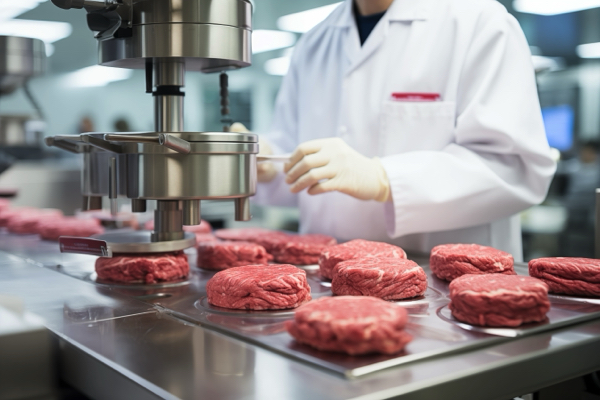
Vegan fake meats are advertised as healthier substitutes to replace the real thing. But such products and other ultra-processed foods (UPFs) may cause more harm than good, according to a new study.
The study published June 10 in Lancet Regional Health – Europe looked at the diets of more than 118,000 participants from the UK Biobank study. Researchers behind the study assessed the diets of the participants, aged between 40 and 69 years old, over at least two days.
They then split the foods the participants ate into two main categories – plant-based products and animal-based products. Fruits, vegetables, grains, bread, cakes, sweets and plant-based meat substitutes comprised the first group. The second group comprised fish, poultry, red meat, eggs and dairy.
The two main groups were further divided into two sub-groups – UPF and non-UPF. Researchers linked this data from the participants to hospital and mortality records to obtain information on cardiovascular diseases.
The study authors found that people who ate a lot of plant-based UPFs – which include vegan burgers, vegan sausages, cakes and potato chips – had a seven percent higher risk of suffering conditions such as blocked heart vessels. The same group of people had a 15 percent higher risk of dying from cardiovascular issues when compared with vegetarians who eat less UPFs. (Related: Plant-based fast foods NO HEALTHIER than their regular counterparts, study reveals.)
Deaths from heart disease fell by a fifth in vegetarians who consumed the least UPD. The same cohort also had a 13 percent overall risk reduction for cardiovascular disease. Those who eat UPFs need not fret, the study authors found, as increasing intake of the plant-based non-UPFs like fresh fruits and vegetables by 10 percent was linked to an eight percent lower risk of getting heart disease.
"Packed with fat, salt and … sugar, UPFs have long been vilified for increasing heart attack and stroke risk," the Daily Mail wrote.
Real plant-based foods are better
"Fresh plant-based foods such as fruits and vegetables, whole grains and legumes are known to have important health and environmental benefits," said the study's corresponding author Dr. Eszter Vamos of Imperial College London's School of Public Health. "While UPFs are often marketed as healthy foods, this large study suggests that plant-based UPFs do not seem to have protective health effects and are linked to poor health outcomes."
Study co-author Dr. Fernanda Rauber of the University of Sao Paulo in Brazil meanwhile remarked that their paper is the first to show that plant-based UPFs are associated with an increased risk of cardiovascular disease. She explained that despite being plant-based, such foods may increase the risk of dyslipidemia (abnormally high amounts of fat in the blood) and hypertension due to their composition and processing methods.
"Food additives and industrial contaminants present in these foods might cause oxidative stress and inflammation, further aggravating the risks," Rauber explained. "Therefore, our results support the shift toward plant-based food choices that consider the degree of processing to improve cardiovascular health outcomes."
Nutrition and health expert Dr. Hilda Mulrooney from London Metropolitan University, who isn't part of the study, said the findings will "cause a stir." She described the study's topic as "an area well worth exploring," adding: "I don't agree with the premise that just because something is 'plant-based,' it is automatically healthy."
According to the Mail, UPFs have undergone various modifications to extend their shelf life or make them more appealing to the customer, or sometimes both. It mentioned two signs that a certain food product is ultra-processed.
First, a food product could be a UPF if it contains ingredients that can't be found in a kitchen cupboard. Such ingredients include unrecognizable food colors, sweeteners and preservatives. Second, a food product could be a UPF if it contains high amounts of fat, salt and sugar.
Head over to FakeMeat.news for similar stories.
Watch this clip from "The Five" on Fox News discussing whether the fake meat fad is finally over.
This video is from the NewsClips channel on Brighteon.com.
More related stories:
The lies behind lab-cultured fake meat.
Bill Gates bankrolls cancer-causing fake meat.
Immortalized cell lines used in lab-grown meats can cause CANCER.
Lab-cultured, GMO-laden fake "meat" is a toxic abomination to be avoided at all costs.
Sources include:
Please contact us for more information.




















